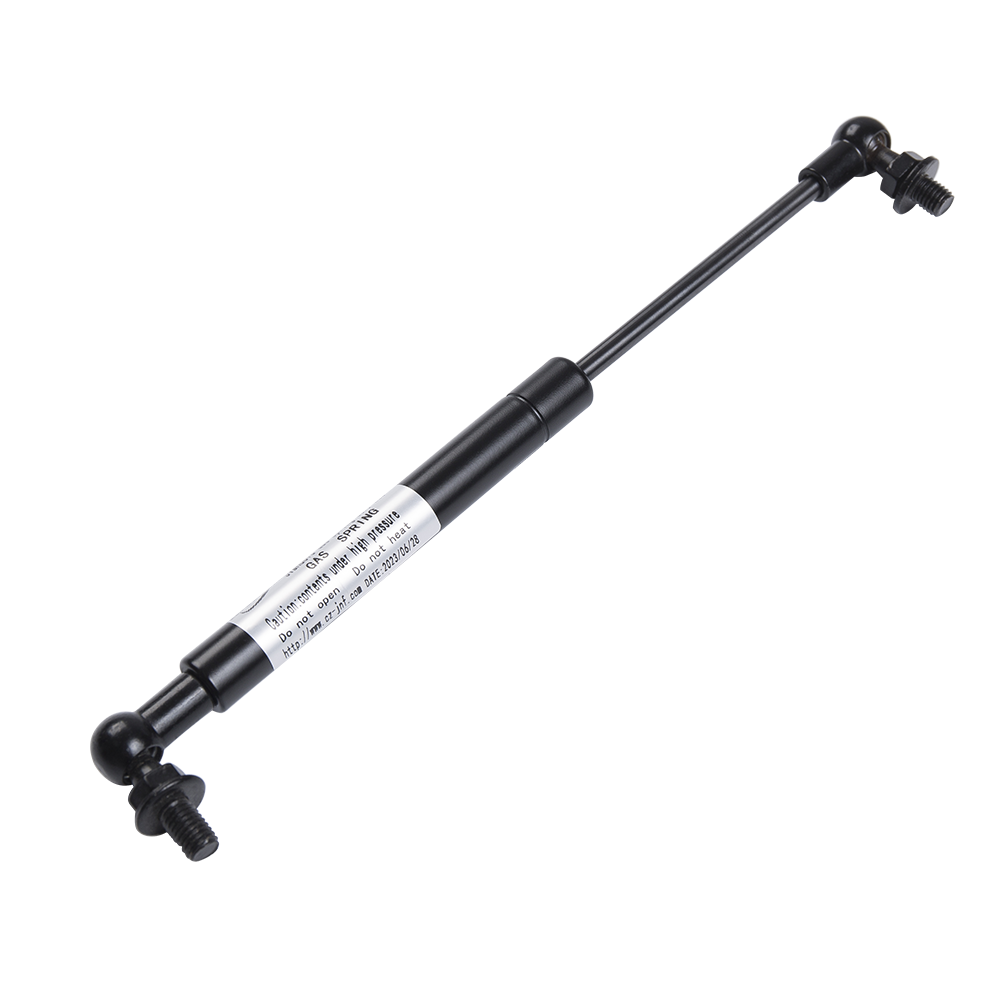Improving the corrosion resistance of Metal Ball Gas Springs is the key to ensuring that they can work stably for a long time in harsh environments. The corrosion resistance of gas springs directly affects their service life, functional stability and maintenance costs.
The corrosion resistance of metal ball gas springs depends first on the choice of their materials. In order to improve corrosion resistance, metal materials or alloys with good corrosion resistance can be selected. For example:
Stainless steel has good corrosion resistance, especially suitable for environments such as moisture and salt spray. Commonly used materials include 304 and 316 stainless steel.
The oxide film naturally formed on the surface of aluminum alloy can play an anti-corrosion role and is suitable for environments with lighter loads and higher requirements for corrosion resistance.
Increasing the corrosion resistance of metal surfaces by nickel plating or chrome plating, especially in high humidity and chemical corrosion environments, can effectively improve the corrosion resistance of springs.
Anti-corrosion treatment of metal surfaces is an important means to improve corrosion resistance. Common surface treatment methods include:
The surface of metal ball gas springs can be electroplated (such as zinc plating, chrome plating) or sprayed (such as spraying anti-corrosion coating) to improve corrosion resistance. Electroplating and spraying can form a protective film to prevent air and moisture from directly contacting the metal, thereby reducing the occurrence of corrosion.

It is suitable for the surface treatment of metal materials such as aluminum alloys. An oxide film is generated on the metal surface through electrolytic reaction, thereby improving the corrosion resistance and wear resistance of the metal.
Anti-corrosion coatings such as epoxy resin, polyurethane, etc. are used to form a thick protective layer to prevent the corrosion of gas springs in humid or chemical environments.
The contact interface between the internal gas (usually nitrogen) and metal parts of the gas spring is easily affected by the external environment, especially in the presence of humid or corrosive gases. In order to improve corrosion resistance, you can:
Design suitable sealing rings, gaskets, etc. to ensure that the internal gas does not leak and prevent external moisture or chemicals from entering. Commonly used sealing materials include fluororubber, chloroprene rubber and other materials with excellent corrosion resistance.
Adopt multiple sealing design, increase the external protective layer, and effectively prevent the infiltration of moisture or corrosive substances.
The metal balls and other metal components inside the gas spring are prone to wear during friction, especially in humid or corrosive environments. Using anti-corrosion lubricating grease can effectively reduce the friction between metal parts and reduce the metal damage caused by friction, thereby improving the overall corrosion resistance.
Choose lubricating grease with excellent anti-oxidation and anti-corrosion properties. For example, grease containing antioxidants and anti-corrosion additives can effectively reduce the chance of corrosion.
To ensure the continuous corrosion resistance of the gas spring, it needs to be lubricated and maintained regularly, especially in a high humidity or dusty working environment.
Through the above methods, the corrosion resistance of the metal ball gas spring can be significantly improved, its service life can be extended, and its reliability and safety in harsh environments can be improved.


 English
English русский
русский











